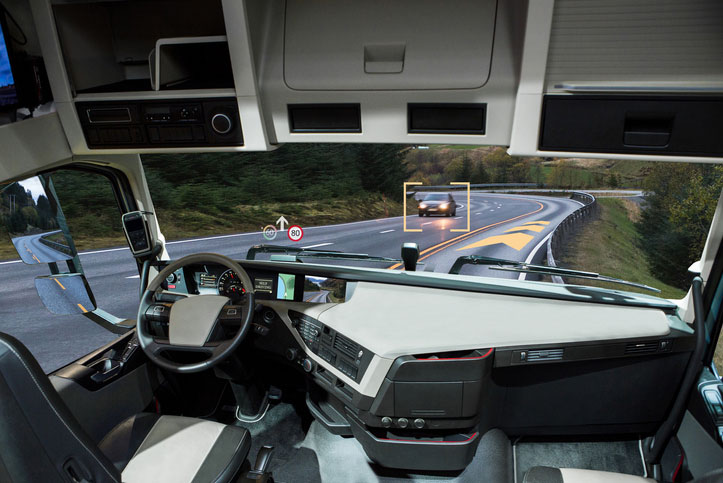Written by Scott Wilson

AI is a field that has snuck up on the world of computer science.
It might be hard to believe now, but until about a decade ago, it was the red-headed stepchild of the industry. AI researchers had trouble finding funding. Projects like Microsoft’s Clippy office assistant became a meme for all that AI lacked, chided both in and outside of computer science circles.
Until recently, a lot of people who might have otherwise been interested in a career in AI engineering gave AI-related education a wide berth in college. They were more likely to go after degrees in computer science, information technology, electrical engineering, or even math or data science.
But while those programs offer a rock-solid grounding in the core skills used in artificial intelligence engineering, they leave out a lot of the important connective tissue and unique education needed to tie it all together within the AI domain.





The AI winter has left a generation of highly skilled programmers and data scientists without the skillset they need to jump on the AI train now that it’s really rolling.
AI certificates from colleges and universities are the answer to bridging that skill gap. Whether you are coming at them from the bachelor’s level or with a complete master’s degree behind you, certificate programs offer a quick, inexpensive educational option for getting your AI engineering skills on track.
What Is an AI Certificate?
 Certificate programs take anyone who is 80 or 90 percent of the way to mastering AI tools and concepts and gets them the rest of the way across that line. Through a handful of classes, usually taking only a few months to complete, they deliver a snapshot of focused expertise in a specific field or function of AI.
Certificate programs take anyone who is 80 or 90 percent of the way to mastering AI tools and concepts and gets them the rest of the way across that line. Through a handful of classes, usually taking only a few months to complete, they deliver a snapshot of focused expertise in a specific field or function of AI.
Even people who have earned degrees in AI don’t always get the exact education they need for the career they want. Sometimes, you don’t really know what you want to specialize in until you get a few years under your belt. And, in many cases, the state-of-the-art in AI moves so fast that you can use an update in your mental toolkit to cover the latest approaches.
Academic certification offers a quick way to pick up important high-level skills and knowledge that might otherwise require a complete college degree to master.
A certificate offers a way to re-skill in areas like machine learning or natural language processing if you decide to move in those directions. You can find them offered at the graduate or postgraduate level, catering to the level of expertise you are bringing to the table.
Certificates are offered in one of four distinct varieties, catering to the unique needs of students with distinct career goals:
- Certificates aimed at stacking common core AI skills on top of existing expertise in programming or data science
- Certificates that teach common AI tools and techniques more broadly applicable to jobs in business and government
- Certificates that deliver a focused course of study on specific AI techniques or subject areas, like NLP, machine learning, or computer vision
- Certificates that are designed to bring professionals from other fields up to speed in AI technology that has specialized applications in their field
To some extent, you can align these types of programs with the three major tracks of AI careers and degrees that are emerging today.
In every case, though, they deliver a high level of skill in a short period of time and at a more affordable price.
Understanding the Difference Between Academic Certificates Offered through Colleges, and Professional Certification Offered Through Software Vendors and Course Providers
 It’s important to distinguish these programs from professional certifications: the kind of technology or capability-specific skill validation that is so important in the computer science industry in general.
It’s important to distinguish these programs from professional certifications: the kind of technology or capability-specific skill validation that is so important in the computer science industry in general.
It’s also important to mention that the terms certificate and certification have been so routinely conflated over the years, that at this point, they are often used interchangeably.
The academic certificates offered by universities represent a thin slice of college-level coursework designed to deliver knowledge along a specific line in the same way you would find in a full degree program. They often offer real college credits and can sometimes be applied toward degrees in the field later. Receiving such a certificate is a sign you’ve done the work and absorbed the knowledge.
But that’s different from a professional cert, which is designed toward testing your skills and validating them. A professional certification is more often offered by software companies validating competencies in their own tools, independent industry bodies, or through AI bootcamps and private course providers. It may have some educational component, but the primary purpose is to develop and confirm your qualifications. To that end, they might also account for your professional experience or use of the technology in the course of your job.
Professional certificates often have a narrower scope, digging into specific tools, techniques, or technologies at the bleeding edge. Because the tech world moves fast, professional certifications often end up serving as a means of acquiring knowledge. But the way in which they approach that training means aren’t always the best thing for developing broader and more foundational skills for AI.
You may well decide to pursue both a certificate and certification at various points in your career. Each has value. But make sure you are getting the right one to fill your current needs!
Qualifying for Artificial Intelligence Certificate Programs Requires the Right Background
 Because academic certificates in AI are intended to build on knowledge you already have, they often have fairly strict admission requirements. With such short, focused courses of study, there’s no room for extra classes to bring you up to speed. You need to demonstrate that you can show up and dig into advanced material on day one.
Because academic certificates in AI are intended to build on knowledge you already have, they often have fairly strict admission requirements. With such short, focused courses of study, there’s no room for extra classes to bring you up to speed. You need to demonstrate that you can show up and dig into advanced material on day one.
So, you’ll always need to have a degree in engineering or the sciences before you even apply to these programs. In many cases, your transcript will also have to show a certain minimum GPA. And for particularly intensive certificates, you may need to show that you have completed certain relevant college coursework as part of your degree… in programming or advanced math like multivariate calculus and linear algebra, for example.
Curriculum in the Different Types of AI Certificate Programs is Tailored to Program Goals
 AI certificate programs are often a great choice because of the breadth of opportunities available. There are certs you can pick up in almost every kind of AI technique or technology. It’s a great way to extend your expertise, qualify yourself for new positions, or keep your capabilities fresh in a field that is changing fast.
AI certificate programs are often a great choice because of the breadth of opportunities available. There are certs you can pick up in almost every kind of AI technique or technology. It’s a great way to extend your expertise, qualify yourself for new positions, or keep your capabilities fresh in a field that is changing fast.
But your first challenge will be picking the right type of certificate to pursue.
Part of this is determined by your current level of education. There are both graduate (post-bachelor’s) and post-graduate certificate programs in AI out there. Graduate certificate programs deliver coursework on par with those offered in master’s programs. Post-graduate certificates kick it up a notch, requiring that you already have a master’s and counting on that advanced education to prepare you to keep up with higher-level coursework.
Each kind of AI certificate comes with its own sort of objectives and different kinds of classes.
1. Computer-Science Focused AI Certificates

These certificates run toward the theoretical side of AI. They cover foundational material and concepts to help you wrap your head around how AI is being developed today, and how breakthroughs are made to take the industry into the future.
That means a lot of coursework that is heavy in subjects like:
- Programming Artificial Intelligence Techniques
- Deep Learning and Neural Network Architecture
- Mathematical Foundations in Computer Science
- Multi-Agent Systems and Game Theory
- Pattern Recognition
These usually come with fairly generic names, like Artificial Intelligence Graduate Certificate, or Advanced Certificate in Artificial Intelligence in Computer Science.
Since there are many areas of study that are ongoing in the computer science world around AI, you can’t expect certificates of this type to cover it all in depth. Instead, they may come at you with a general overview and practical familiarity with techniques like machine learning, or they may offer the opportunity to specialize in a specific area of research, like robotics or image processing.
2. Business-Focused AI Certificates

More applied types of certificate programs have a different angle to their coursework. Although you will touch on theory and the general nature of AI, you’ll spend most of your time deep in the specific applications in real-world business and government functions.
They are often named to reflect that kind of focus, as with one of these:
- Post Graduate Certificate in Artificial Intelligence and Machine Learning: Business Applications
- AI Foundations for Product Innovation Graduate Certificate
- Graduate Academic Certificate in Big Data and Intelligent Systems.
In some cases, these certificates are built for professionals coming in without the kind of hardcore computer science and data analytics background as most AI engineers. In those cases, they may come with built-in prerequisite courses in areas like data science fundamentals, Python programming, and computational reasoning.
3. AI Specialty Area-Focused Certificates
There are also specialized certificates that are designed to help current AI engineering professionals angle their expertise toward specific areas of AI and solutions in the real world. These sometimes come with titles specific to the AI functions they specialize in, including Graduate Certificate in Natural Language Processing, Graduate Certificate in Computational Linguistics, or a Graduate Certificate in Applied Machine Learning.
More often though, they wear a more generic title, but come with courses honed to specific subject areas. In general, you’ll find coursework that has applied versions of fundamentals like:
- Machine Learning Models for Recommendation Engines
- Deep Learning and Computer Vision
- Applied Machine Learning for Data Science
- Optimization in Practice
- Building Products Using Deep Learning
These types of certificates are also more likely to involve real-world projects or built-in mentorship options for active professionals in AI.
You may also find something like a Graduate Certificate in Ethical Artificial Intelligence. Though it may not include much technical coursework, it helps broaden technical understanding into a worldview that incorporates social and ethical responsibility in AI product development.
4. Professionally-Focused AI Certificates

At the most sensitive and applied end of the certificate spectrum, you’ll find industry-specific programs that address unique and important problems. A Graduate Certificate in AI Engineering Fundamentals – Mechanical Engineer, Graduate Certificate in AI Digital Health, or a Graduate Certificate in Artificial Intelligence in Medicine all have coursework that caters to professionals in their core audience.
There’s often an introductory course to hit the high-level notes of AI engineering, such as Machine Learning & Artificial Intelligence for Engineers or Machine Learning in Medicine, and then a deep dive into tools and uses:
- Deep Learning for Engineers
- Programming for Biomedical Informatics
- AI/ML Applications in Medical Imaging
- Artificial Intelligence in Radionics
Since they are usually aimed at people coming from industries with specific professional requirements, the classes are tailored to your existing education and knowledge base.
How to Evaluate Schools Offering AI Certificates and Find the Perfect Fit for Your Career

Your work in building out a list of potential programs and the schools that offer them won’t take long: AI is a new field of professional development, and there aren’t a lot of options available in AI certificates just yet. That’s particularly true when you consider how they are split between different professional objectives. You are really only interested in a small subset of an already small field.
But that doesn’t make the school you pick and the quality of your experience any less important. Although less expensive than a full degree, a certificate in AI is still an investment: in money, in your valuable time, in your future. You want the best fit you can find.
You can up your odds of getting a good match by focusing on qualities like:
Instructors With Strong Professional and Academic Credentials
Particularly in such short programs, good or bad instructors can make all the difference. With so few classes in an AI certificate, you can’t afford any duds. So, professors who have strong credentials in academic and professional applications are a big deal for any AI certificate program.
Related Degree Programs and Areas of Research
For most colleges, the instructors for their certificate programs will be the same individuals teaching in regular degree programs there. So, the more closely aligned those degree programs are with the certificate area, the higher the quality of education is likely to be. This also carries over into research goals and programs at the school. So, finding a university that is considered a center of excellence in your focus area pays big dividends for certificate studies.
Ties to Industry and Research Centers in the Field
Although independent research and projects aren’t usually a feature in certificate programs in AI, their existence at the university can have a big impact on your education. By putting yourself in a department that is pushing forward on the leading edge of AI technology and applications, you’ll be getting up-to-date training in the hottest tools and techniques used in your industry.
Solid Academic Support and Counseling Services
Certificates are often about leverage—getting you into new jobs you wouldn’t otherwise qualify for, helping you take a step up the career ladder. But that’s not something that just happens automatically. First, you need to get through the program and absorb the material. That’s where academic support services like tutoring, online resources, and mentorship come in. Then, you need to make the right connections and get your resume on the right desks to land the job you are looking for. That’s a place where solid career counseling and networking programs can give you a boost.
Taking an AI Certificate Program Online Puts a Convenient Education into an Easy Format
 Certificate programs in AI are really the province of working professionals. And if you’re already working in technology, you understand exactly how tough it can be to free up time to take any kind of traditional class. If you’re already burning the candle at both ends between work and family, driving to a college and putting a couple hours into listening to lectures at a set time three days a week is almost unimaginable.
Certificate programs in AI are really the province of working professionals. And if you’re already working in technology, you understand exactly how tough it can be to free up time to take any kind of traditional class. If you’re already burning the candle at both ends between work and family, driving to a college and putting a couple hours into listening to lectures at a set time three days a week is almost unimaginable.
So online certificate programs have become the norm in AI. Just as with other kinds of computer science coursework, these subjects are easy to study remotely via computer, tablet, or even a smartphone. Most of the heavy lifting of AI programming happens in the cloud anyway. Your location makes little difference.
And since so many students have such varying demands on their time, most courses are offered asynchronously. With the ability to shift those lectures to on-demand streams that happen after you get the kids off to school or while you’re out jogging after work, you can fit them into even the busiest of schedules.
Online certificate programs dramatically expand the number of programs you can consider for AI studies.
Although they are becoming more common, certificates in AI are still a bit thin on the ground in the United States. To find one that offers the perfect match for your academic goals, you may be looking a few states away. In most cases, that’s as good as ruling it out. But not if it’s available online.
With the right background and with the right goals, an AI certificate at any level can take your career on a trajectory where it could profoundly affect the arc of human history. It’s an unparalleled opportunity, and a remarkably convenient chance to take your place in a groundbreaking industry.






